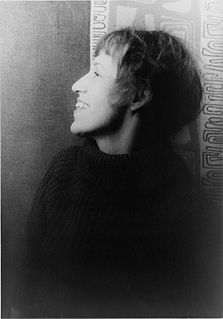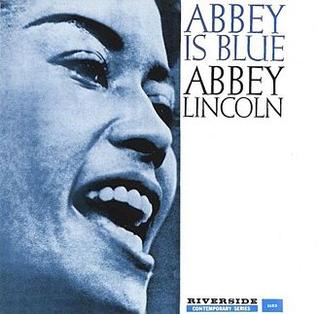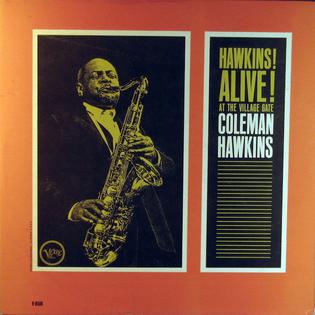| ||||||||||||||
| ||||||||||||||
The Reform Party of the United States of America held primary elections for its presidential candidate in May 2008. Ted Weill ran unopposed.
| ||||||||||||||
| ||||||||||||||
The Reform Party of the United States of America held primary elections for its presidential candidate in May 2008. Ted Weill ran unopposed.
Businessperson Ted Weill of Mississippi

Kurt Julian Weill was a German composer, active from the 1920s in his native country, and in his later years in the United States. He was a leading composer for the stage who was best known for his fruitful collaborations with Bertolt Brecht. With Brecht, he developed productions such as his best-known work, The Threepenny Opera, which included the ballad "Mack the Knife". Weill held the ideal of writing music that served a socially useful purpose, Gebrauchsmusik. He also wrote several works for the concert hall and a number of works on Jewish themes. He became a United States citizen on August 27, 1943.

Lotte Lenya was an Austrian-American singer, diseuse, and actress, long based in the United States. In the German-speaking and classical music world, she is best remembered for her performances of the songs of her first husband, Kurt Weill. In English-language cinema, she was nominated for an Academy Award for her role as a jaded aristocrat in The Roman Spring of Mrs. Stone (1961). She also played the murderous and sadistic Rosa Klebb in the James Bond movie From Russia with Love (1963).

Sanford I. "Sandy" Weill is an American banker, financier and philanthropist. He is a former chief executive and chairman of Citigroup. He served in those positions from 1998 until October 1, 2003, and April 18, 2006, respectively.

Weill Cornell Medical Center is a research hospital in New York City. It is part of New York-Presbyterian Hospital and the teaching hospital for Cornell University. The hospital was founded in 1771 with a charter from George III. It is the second oldest hospital in New York City and third oldest hospital in the United States. Since 1912, it has been the main teaching hospital for Weill Cornell Medicine, the biomedical research unit and medical school of Cornell University.
The "Alabama Song"—also known as "Moon of Alabama", "Moon over Alabama", and "Whisky Bar"—is an English version of a song written by Bertolt Brecht and translated from German by his close collaborator Elisabeth Hauptmann in 1925 and set to music by Kurt Weill for the 1927 play Little Mahagonny. It was reused for the 1930 opera Rise and Fall of the City of Mahagonny and has been recorded by the Doors and David Bowie.

Desperate Straights is a collaborative studio album by British avant-rock groups Slapp Happy and Henry Cow. It was recorded at Virgin Records' Manor Studio and Nova Sound Studios in November 1974, and released in February 1975. It was Slapp Happy's second album for Virgin, and they had invited Henry Cow to record with them.

Weill Cornell Medicine-Qatar (WCM-Q) is a branch of Weill Cornell Medicine of Cornell University, established on April 9, 2001 following an agreement between Cornell University and the Qatar Foundation for Education, Science and Community Development. It is located in Education City, Qatar, near the capital of Doha.

The Weill Cornell Graduate School of Medical Sciences (WCGS) is a graduate college of Cornell University that was founded in 1952 as an academic partnership between two major medical institutions in New York City: the Weill Cornell Medical College and the Sloan Kettering Institute. Cornell is involved in the Tri-Institutional MD-PhD Program with Rockefeller University and the Sloan Kettering Institute; each of these three institutions is part of a large biomedical center extending along York Avenue between 65th and 72nd Streets on the Upper East Side of Manhattan.

Ella Fitzgerald Sings Songs from the Soundtrack of "Let No Man Write My Epitaph" is a 1960 album by the American jazz singer Ella Fitzgerald, accompanied by the pianist Paul Smith. Let No Man Write My Epitaph was a 1960 Hollywood crime drama film featuring Fitzgerald.
Weill Cornell Medicine, officially the Joan & Sanford I. Weill Medical College of Cornell University, is the biomedical research unit and medical school of Cornell University. Along with the Weill Cornell Graduate School of Medical Sciences, Weill Cornell is located at 1300 York Avenue on the Upper East Side of Manhattan in New York City. The medical school is named for its benefactor, former Citigroup chairman Sanford Weill.

Tony Bennett at Carnegie Hall is a 1962 live album by Tony Bennett. The June 9th concert was directed by Arthur Penn and Gene Saks. Carnegie Hall had not featured a pop performer until April 23, 1961 when Judy Garland recorded her legendary concert.

The Eternal Road is an opera-oratorio with spoken dialogue in four acts by Kurt Weill with a libretto, by Austrian novelist and playwright Franz Werfel and translated into English by Ludwig Lewisohn.

Theodore C. Weill was an American politician who served as the presidential nominee of the Reform Party of the United States of America during the 2008 presidential election.
Side by Side is a 1994 studio album by pianist Oscar Peterson and violinist Itzhak Perlman.
A Tribute to Oscar Peterson – Live at the Town Hall is a 1997 live album by Oscar Peterson, and featuring various artists paying tribute to Peterson.
Grand Piano is a 1985 studio album by the pianist George Shearing.

The Reform Party of the United States of America held primary elections for its presidential candidate in May 2004. Ralph Nader was overwhelmingly endorsed as candidate.

My Heart Sings is an album by American singer Tony Bennett. It was recorded in 1961 and released the same year on Columbia as CL 1658. So far, it has been released on CD only in Japan by Sony/CBS.

Abbey Is Blue is the fourth album by American jazz vocalist Abbey Lincoln featuring tracks recorded in 1959 for the Riverside label.

Hawkins! Alive! At the Village Gate is a live album by saxophonist Coleman Hawkins which was recorded at the Village Gate in 1962 and released on the Verve label.